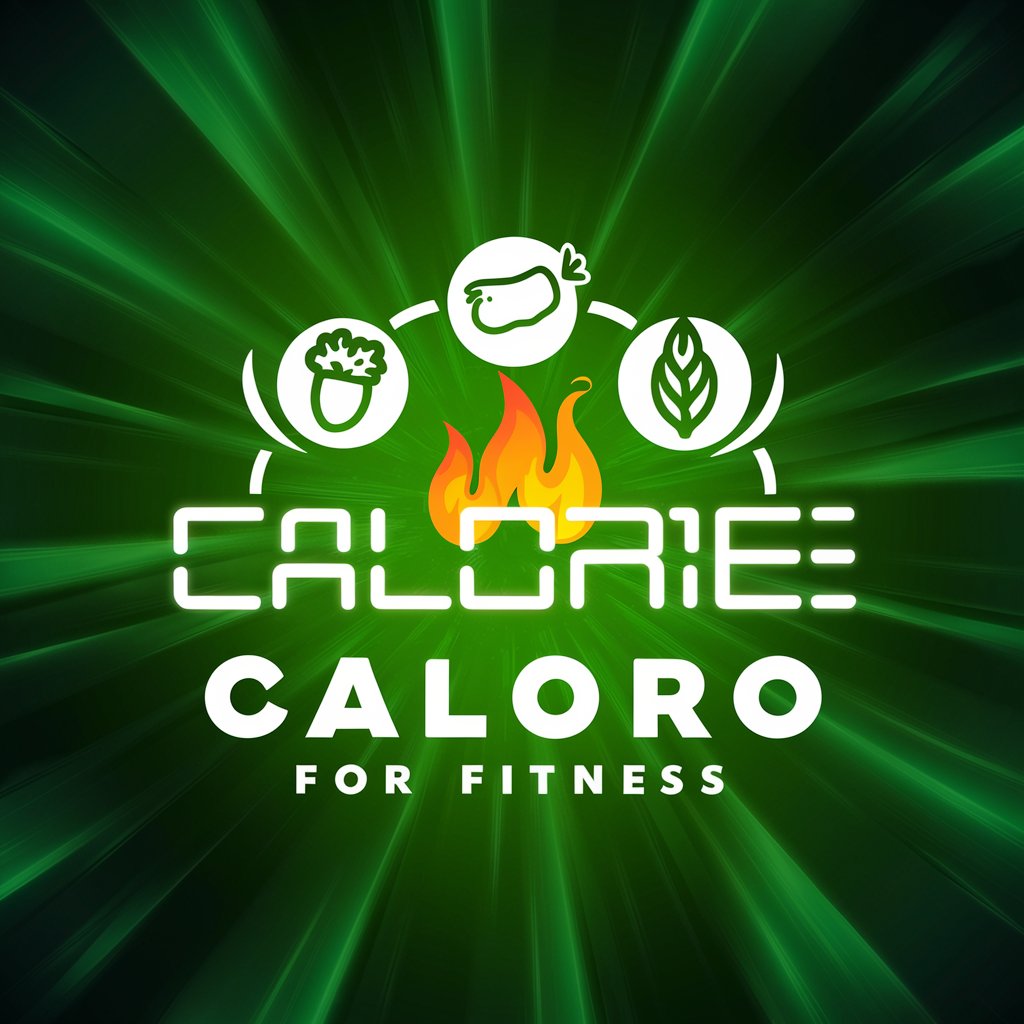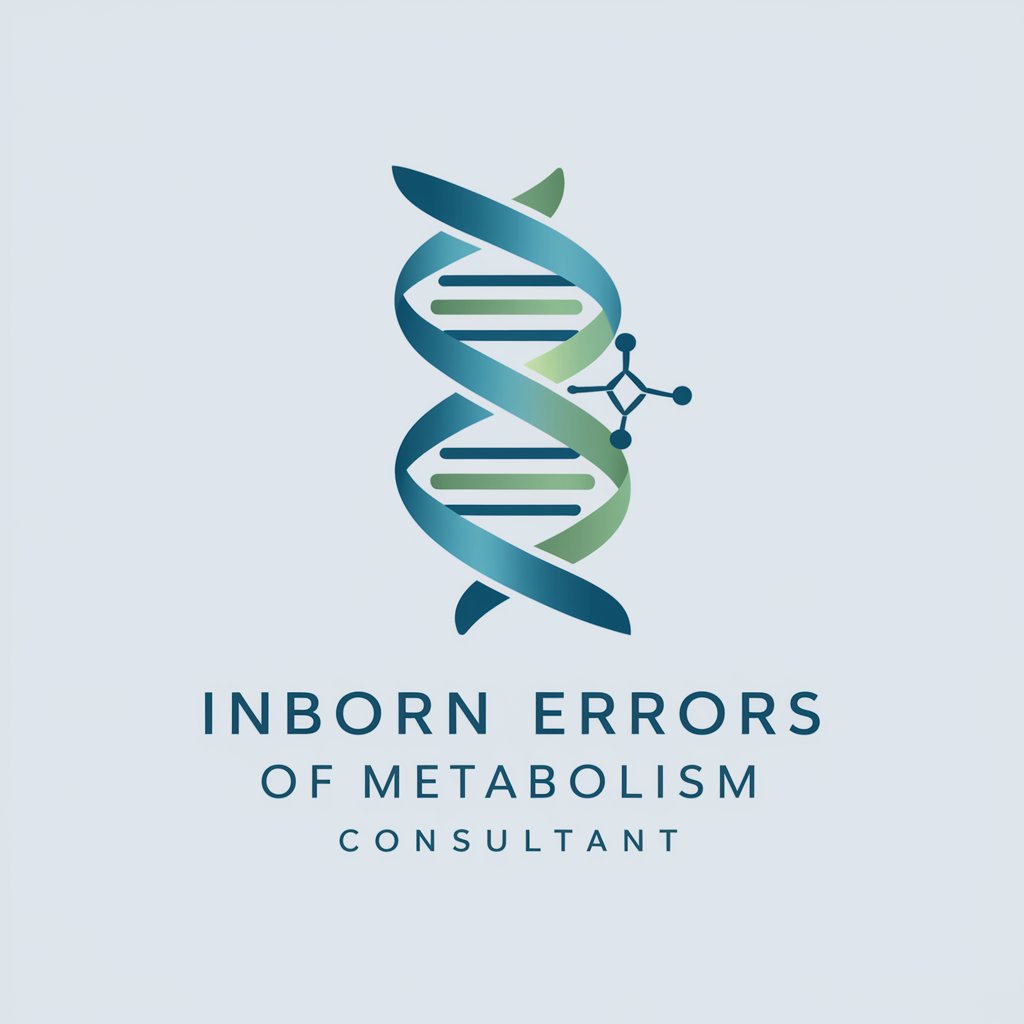Calories, Metabolism, and Macros! - Metabolic & Nutritional Guide

Welcome! Let's optimize your metabolism and macros for better fitness.
Optimize your diet with AI-powered nutritional planning.
Calculate my daily caloric needs using the Harris-Benedict equation given my activity level:
Explain how proteins, carbs, fats, and alcohol contribute to my overall diet and metabolism.
How do I allocate my daily calorie intake for muscle gain based on my macronutrient needs?
What is reverse dieting and how can it help maintain my weight after a diet?
Get Embed Code
Understanding Calories, Metabolism, and Macros!
Calories, Metabolism, and Macros! is designed to assist individuals in navigating the complex world of nutrition and metabolic health. By employing the Harris-Benedict equation, it offers personalized estimates of metabolic rates adjusted for various levels of physical activity, ranging from sedentary to extremely active lifestyles. Furthermore, it provides in-depth insights into macronutrients (proteins, carbs, fats, and alcohol), explaining their caloric content, roles in the body, and how they affect weight management and fitness goals. For instance, it can guide someone on how to adjust their macro intake for muscle gain by recommending a higher protein and carb intake while maintaining a balanced amount of fats. Powered by ChatGPT-4o。

Core Functions of Calories, Metabolism, and Macros!
Metabolic Rate Estimation
Example
Calculating the basal metabolic rate (BMR) for a moderately active individual weighing 70kg, 175cm tall, aged 30, and then adjusting it for their activity level.
Scenario
A personal trainer uses this function to tailor a diet plan that aligns with the energy expenditure of their client, ensuring a caloric intake that supports their weight loss goal.
Macronutrient Breakdown
Example
Guiding an individual on how to allocate their daily caloric intake into specific amounts of proteins, carbs, and fats based on their goal of muscle gain.
Scenario
A dietitian explains to a client recovering from surgery the importance of increased protein intake for muscle repair and how to adjust their diet to include the necessary macros.
Alcohol's Impact on Metabolism
Example
Explaining how alcohol, providing 7 calories per gram, fits into a daily caloric budget and its effects on fat metabolism.
Scenario
A health coach discusses with a client the implications of regular alcohol consumption on their weight loss efforts and provides strategies to mitigate its impact.
Reverse Dieting Guidance
Example
Outlining a plan for gradually increasing caloric intake after a prolonged period of dieting to prevent sudden weight gain.
Scenario
A nutritionist advises a client who has reached their weight loss target on how to increase their food intake responsibly to maintain their new weight.
Who Benefits from Calories, Metabolism, and Macros!?
Fitness Enthusiasts
Individuals focused on specific fitness goals, such as bodybuilding, endurance sports, or general fitness, who need precise dietary plans to match their rigorous training regimens.
Weight Management Individuals
People looking to lose, gain, or maintain weight through a controlled diet, needing to understand how their caloric intake and macronutrient balance affect their goals.
Healthcare Professionals
Dietitians, nutritionists, and personal trainers seeking reliable tools to provide personalized dietary advice to clients, based on scientifically calculated metabolic rates and macronutrient needs.
Recovery Patients
Individuals recovering from surgery or injury who require a tailored diet to facilitate tissue repair, muscle growth, and overall recovery, emphasizing protein intake and balanced nutrition.

How to Utilize Calories, Metabolism, and Macros!
1
Begin by accessing a comprehensive metabolic and nutritional guide without the need for sign-up or subscription; visit yeschat.ai for a seamless start.
2
Input your personal details such as age, weight, height, and daily activity level to accurately calculate your basal metabolic rate (BMR) using the Harris-Benedict equation.
3
Choose your goal (e.g., weight loss, muscle gain) to get customized macro-nutrient ratios. This tool will guide you in understanding how many calories you should consume from proteins, fats, and carbohydrates.
4
Utilize the detailed breakdown of macro-nutrient requirements to plan your meals and track your daily intake for optimal results.
5
Regularly update your profile with any changes in weight, activity level, or goals to ensure your nutritional targets are always accurate and tailored to your needs.
Try other advanced and practical GPTs
K3P1
Empowering Innovation with AI

Orin
Power Your Decisions with AI

TRU
Empowering Construction with Digital Innovation

Prompt Refiner
Refine Your Ideas with AI Precision

Effortless Language Learning
Master languages with AI-powered guidance.

Office Speak Translator
Transform Talk into Corporate Speak

Metabot
Empowering Your Ideas with AI

Inborn Errors of Metabolism Consultant
Unlocking the secrets of metabolism with AI

Clickbait Creator
Craft Captivating Headlines Effortlessly

Agile Scrum Product Manager Coder SDLC-AI
Empowering Agile Development with AI

ULTIMATE LIFE COACH-INTERACTIVE
Empower Your Journey to Personal Mastery

Little Chef Helper
Nourish Your Baby with AI-Powered Precision

Frequently Asked Questions about Calories, Metabolism, and Macros!
How does the Harris-Benedict equation work for calculating BMR?
The Harris-Benedict equation estimates your basal metabolic rate (BMR) based on your age, sex, weight, and height. It provides the number of calories your body needs at rest to maintain vital functions. This number is then adjusted based on your activity level to estimate your daily calorie needs.
What role do macros play in diet planning?
Macros, or macronutrients, including proteins, fats, and carbohydrates, are the cornerstone of nutrition planning. Depending on your goals (e.g., weight loss, muscle gain), your macro split will vary to ensure your body gets the right balance of nutrients for energy, muscle building, and fat loss.
How can I adjust my diet for weight loss using this tool?
To adjust your diet for weight loss, first calculate your total daily energy expenditure (TDEE) using your BMR and activity level. Then, create a calorie deficit by consuming fewer calories than your TDEE, while maintaining an optimal balance of macros tailored to support fat loss and preserve muscle mass.
Can this tool help me plan a muscle gain diet?
Yes, by providing your body composition and activity level, the tool calculates your caloric surplus needs. It also suggests an appropriate macro split focusing on higher protein intake and balanced carbs and fats to support muscle synthesis and energy requirements for workouts.
How does alcohol consumption affect my macros and overall diet?
Alcohol provides 7 calories per gram, which can add up quickly without contributing nutritional value. Regular alcohol consumption can inhibit fat loss by prioritizing alcohol metabolism over other nutrients and can disrupt the balance of your macro intake, affecting your diet goals.
